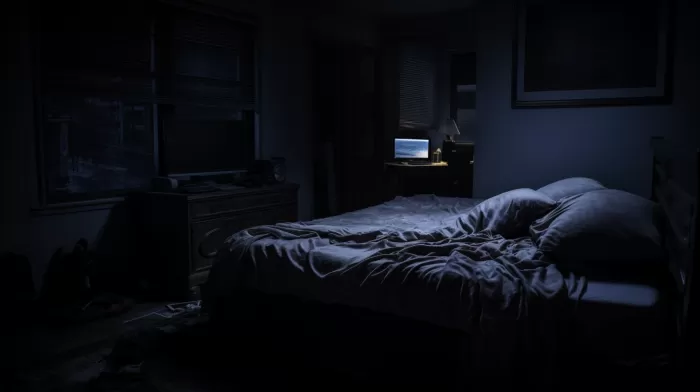Depression is a widespread issue impacting millions of people in the U.S. annually. One potential contributing factor to this mental health crisis is our constant exposure to artificial light at night from various sources, such as our televisions, computers, cellphones, and room lighting. Research from Ohio State University has shown that excessive exposure to light at night can lead to depressive symptoms. However, by making adjustments to our nighttime habits and reducing our exposure to electronic screens and artificial light, we can lessen these depressive symptoms and improve our overall mood.
The Science of Light Exposure and Depression
The research conducted at Ohio State focused on the impact of nighttime lighting on the brain, particularly a section called the hippocampus. The hippocampus plays a crucial role in regulating our mood and emotions, and alterations to its normal function can lead to depression. The studies revealed that prolonged exposure to light at night can disrupt the natural balance of the hippocampus and cause negative changes in mood.
While these findings may seem discouraging, the good news is that our brain has the ability to reverse these harmful effects if we adjust our nighttime routines. According to the lead author of the study, Tracy Bedrosian, people who stay up late watching television or using their computers “may be able to undo some of the harmful effects just by going back to a regular light-dark cycle and minimizing their exposure to artificial light at night.”
However, it’s important to note that it may take a couple of weeks for the benefits of reduced nighttime light exposure to take effect and improve your mood.
Tips for Reducing Nighttime Light Exposure
If you’re looking to improve your mental health by cutting back on your nighttime light exposure, here are some practical tips to help you get started:
- Create a Sleep-Friendly Environment: Make your bedroom as dark as possible by investing in blackout curtains or using an eye mask. You can also consider replacing traditional light bulbs with dimmable or smart lights that can be controlled remotely or have a sleep timer function to gradually dim the lights at bedtime.
-
Develop a Consistent Sleep Schedule: Establishing a regular bedtime and wake-up time can help regulate your body’s circadian rhythms, which can improve your mood and reduce your exposure to artificial light at night.
-
Reduce Screen Time Before Bed: The blue light emitted from electronic devices can disrupt your body’s melatonin production, making it harder for you to fall asleep. Aim to limit your screen time at least an hour before going to bed, or switch to using devices with a built-in blue light filter, such as the “Night Shift” feature on Apple devices or apps like “f.lux.”
-
Engage in Relaxing Activities Before Bed: Instead of scrolling through social media or watching TV, try engaging in calming activities such as reading a book, practicing meditation, or taking a warm bath. These can help signal to your brain that it’s time to wind down and sleep.
-
Consider Light Therapy: Light therapy involves exposure to a bright light during the day, particularly in the morning hours, to help regulate your body’s internal clock. This can be particularly helpful for people who suffer from seasonal affective disorder (SAD) or have difficulty adjusting to shifts in day length throughout the year.
Additional Resources
For more information on the impact of artificial light on mood and sleep, you can visit the following reputable sources:
- The National Sleep Foundation
- The American Academy of Sleep Medicine
- The Mayo Clinic’s Guide to Light Therapy
Remember, improving your mental health is a process that requires patience and persistence. By making small changes to your nighttime habits and being mindful of your exposure to artificial light, you can take meaningful steps toward better mental well-being.



